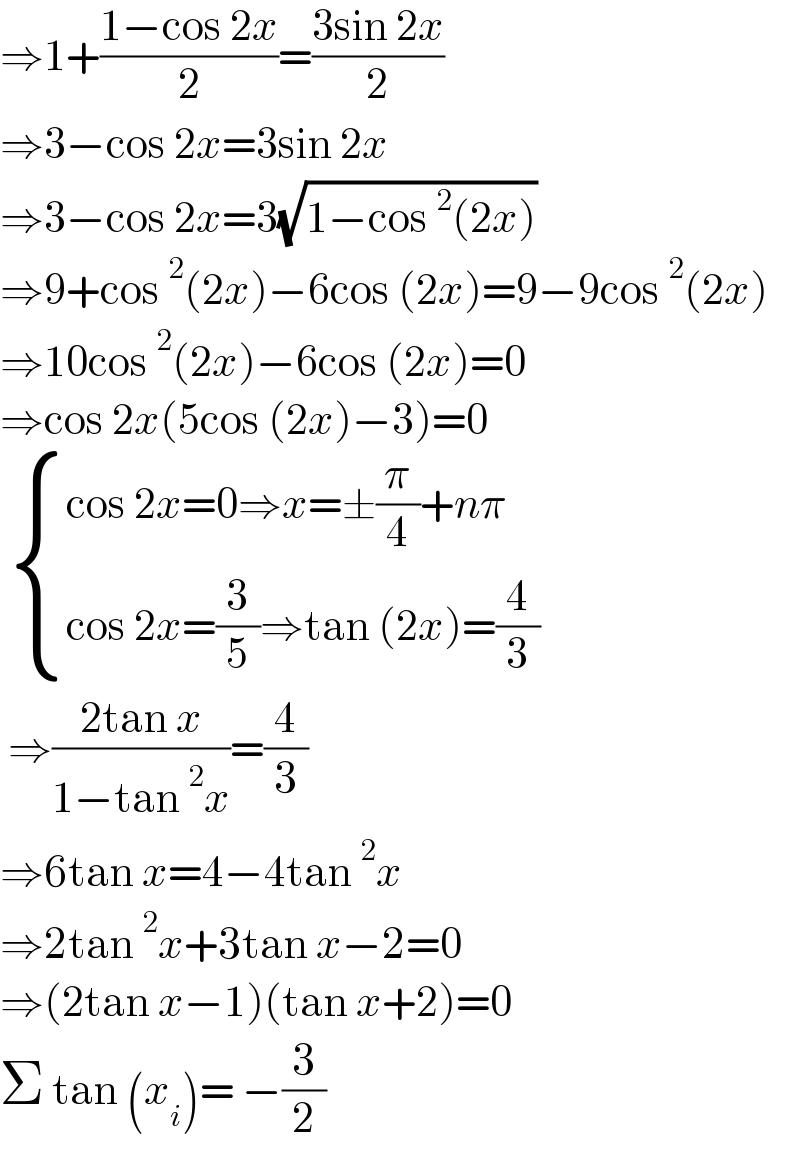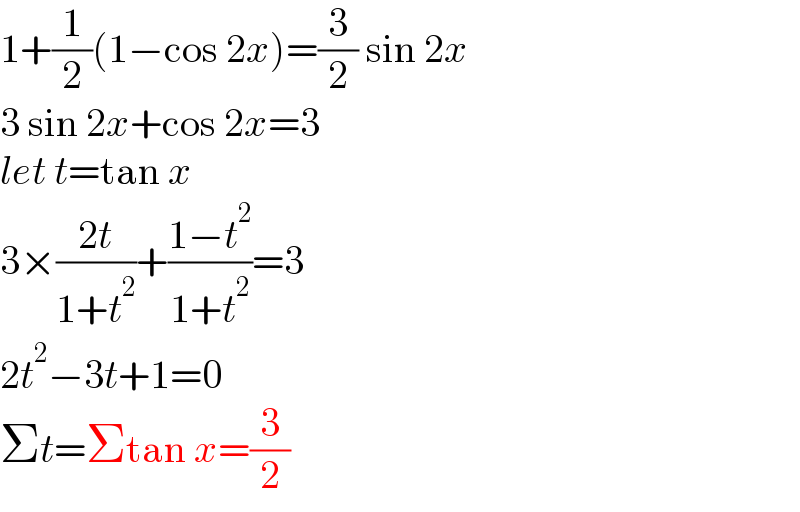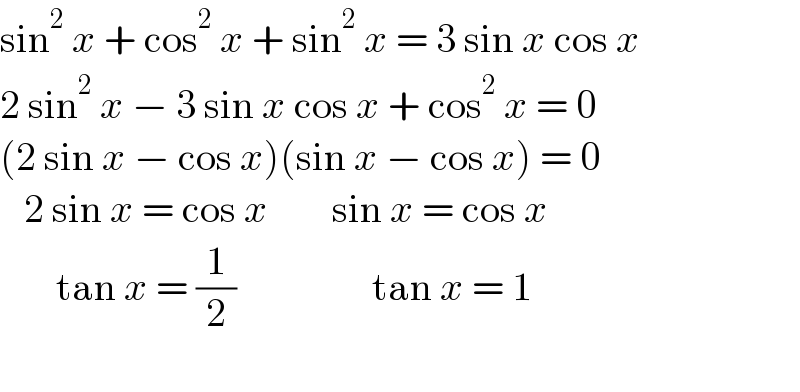
Question and Answers Forum
Question Number 157080 by amin96 last updated on 19/Oct/21

Commented by cortano last updated on 20/Oct/21

Commented by mr W last updated on 19/Oct/21

Answered by mr W last updated on 19/Oct/21

Answered by amin96 last updated on 19/Oct/21

Commented by amin96 last updated on 19/Oct/21

Answered by lyubita last updated on 19/Oct/21

